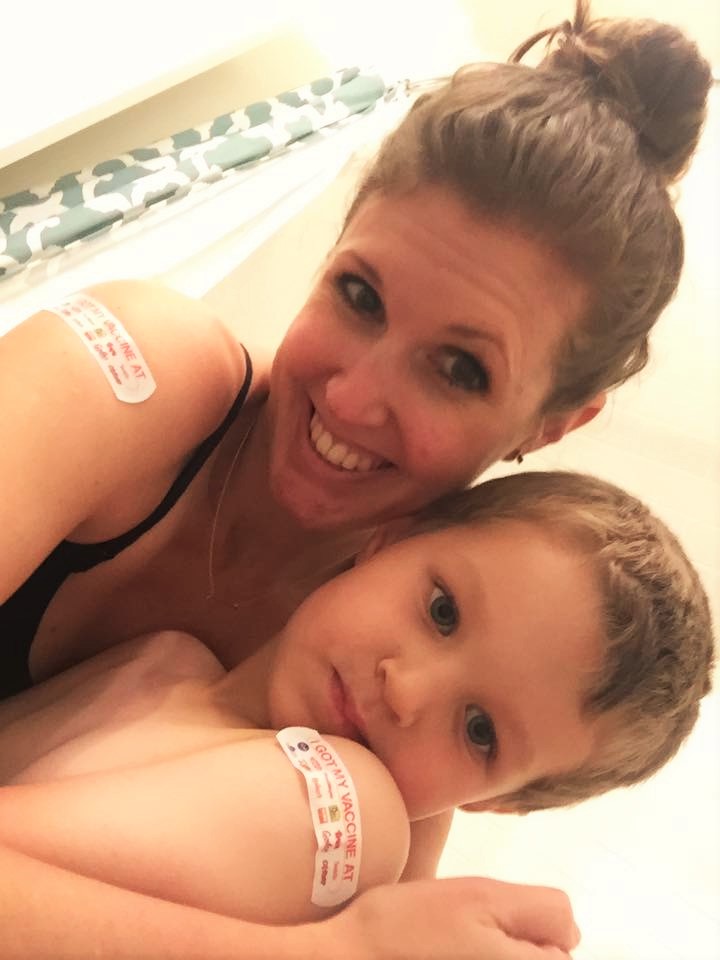It’s that time of year again . . . The crisp mornings, the leaves changing colors—and the little noses running like faucets. Cold and flu season is upon us, and—as parents—we want to stop all the coughing, sneezing, and complaining. In short, we want to get them back to school! As I tell my patients, my magic virus-curing wand is on backorder at Amazon, but there are things you can do to prevent getting sick.
You’ve heard it before, but it bears repeating: a cold is a virus. A cold cannot be cured using antibiotics. Antibiotics can only be used to treat bacterial infections. Taking antibiotics for a virus would be like trying to use your computer mouse to change your TV channel—completely ineffective.
Since no cure for a virus exists, we try the next best thing—prevention. Wash your hands, teach your children how to properly wash their hands, and teach them to cough and sneeze into their shoulders. And get a flu shot. Please. When I talk to patients about this, there seem to be two prevailing mindsets. First: yes, please. Can I get my shot right now? And second: I don’t believe in the flu shot. I’ve never had one, and I’ve never had the flu.
So let’s talk about the flu . . .
What exactly is the flu?
Influenza: a respiratory illness caused by influenza A or B viruses (yes, plural). These viruses are constantly changing. If they evolve into a strain that humans are susceptible to, they spread and “go viral.” Ha—see what I did there? This is why so much time, money, and effort is spent on influenza research. Each year the Centers for Disease Control (CDC) evaluates data from the previous flu season and the effectiveness of the previous years’ vaccine, and develops a flu vaccine. They spend all this time, money, and energy for a very good reason. Influenza is a serious illness and can have devastating consequences. For the majority of us, the flu means a horrible week on the couch. But for some (the very young, the very old, and those with certain medical conditions)? The flu can be deadly.
How does the vaccine work?
The flu vaccine is inactivated (or broken-down pieces of a virus) meaning it does not contain a live virus. This means you cannot get the flu from the flu shot. When you get the vaccine, your body’s immune system mounts a physical response to the virus and creates antibodies. Think of these antibodies as flu-fighting super-warriors. So you get your flu shot, your body makes flu-fighting super-warriors, and then when/if you come in contact with one of these flu strains, your super-warriors kill off the flu virus. And you don’t get sick. Kind of amazing actually.
Why get the flu shot?
When people become infected by one of these influenza viruses, they may develop a fever, chills, cough, fatigue, body aches, and less commonly, a sore throat and/or runny nose. Children can present differently. They may have higher temperatures or stomach complaints (like decreased appetite, nausea, vomiting, or diarrhea). In most children and adults, the virus resolves on its own in 7-10 days. But some may experience a more severe illness or develop respiratory complications as a result of the infection. This can be really serious.
Young children (those under the age of 5, but especially those under age 2) are at increased risk for hospitalization or developing flu-related complications. So are adults over the age of 65, pregnant women, people who live in nursing homes or long-term care facilities, and people with certain medical conditions (i.e. asthma, COPD, cancer). When I look at the people in my life—my kids, my parents, my in-laws, and several close family friends—many are at increased risk of severe illness as a result of the flu. Even if I didn’t work in healthcare, I would choose to protect myself for their sake!
How does the flu spread?
Influenza viruses spread through coughing, sneezing, and talking—or touching objects contaminated with the virus. Now, I love my children. But they are little germ buckets. And they love to touch everything. Viruses love children because children spread their love. And since the incubation period of influenza viruses is between one and four days? It’s a virus that spreads quickly and affects many. Even scarier? People often spread the virus before they even start showing symptoms.
So what can you do to keep yourself from getting sick this flu season? Wash your hands. Avoid contact with sick people. And get a flu shot. It’ll protect you and help protect your community.
For more information about the flu, please visit the CDC website at http://www.cdc.gov/flu/

















I haven’t done as much research as I would like, but I am a no flu vaccine woman. What are the side effects or risks to flu shot? Why is flu more dangerous than those risks? I’d you have high risk friends and family and the flu shot is so effective then shouldn’t only they need to get it? I avoid germ x products which have come under fire lately for contributing to super bugs. I just don’t believe western medicine had all the answers. But maybe if I get the flu I’ll change my tune. Because I haven’t for at least the past 10 years.
Just having this conversation with Mel about why he has an appointment at the pediatrician tomorrow to get his vaccine. Beautifully written with a great injection of humor!! See I can be clever too!
Cassie, so sorry you do not get the Flu shot. I hope you allow your kids to get it. Aside from a little soreness at the injection site there really are no side effect from the shot.
But, the flu is a very significant disease. According to the CDC there were 55,227 deaths from pneumonia caused by influenza in the US in 2014, the last year full data is available. Check it out at https://www.cdc.gov/nchs/data/nvsr/nvsr65/nvsr65_04.pdf.
If you would like to read a great book about the flu epidemic of 1918, get: John M. Barry, The Great Influenza: The Epic Story of the 1918 Pandemic, (New York: Viking, 2004. Most libraries will have it. John Barry is a superb writer so I warn you that once you pick up this book you’ll not want to set it down until it’s finished. It one of the best books i have read. Kind of rivals Michael Crichton, and it’s not fiction. Let me know how you like it!